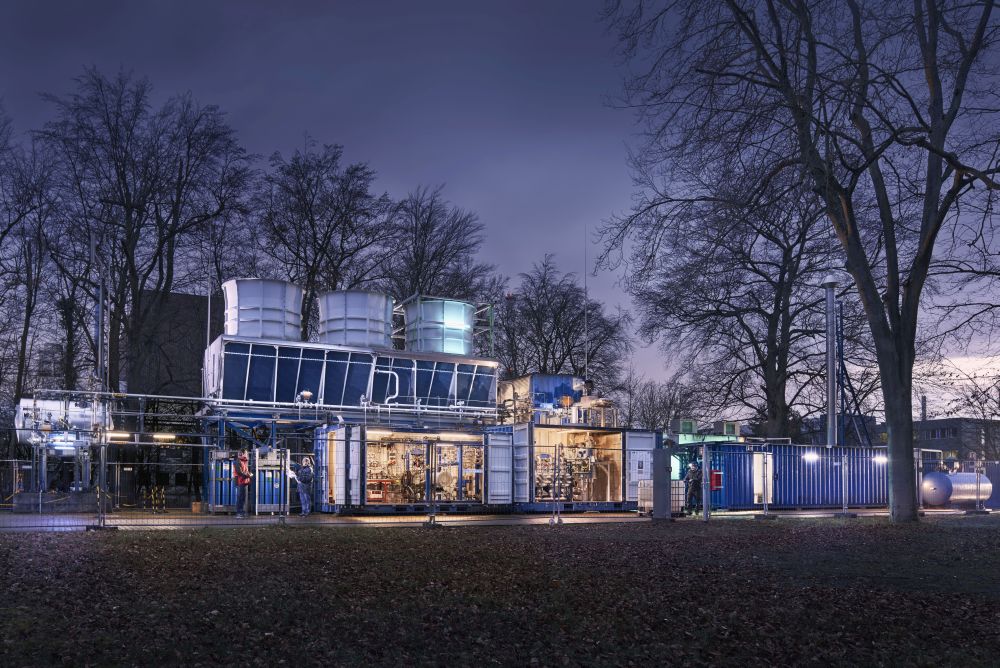The MoNiKa power plant
The Modular Low Temperature Cycle Karlsruhe (MoNiKa):

Researchers and industry are working on technologies for the energy-efficient conversion of low-temperature heat into electricity
At the Karlsruhe Institute of Technology North Campus, a power plant cycle for low-temperature heat sources was designed and constructed at the Institute for Thermal Energy Technology and Safety (ITES). This modular Organic Rankine Cycle (ORC) enables the investigation of different components, operating modes and working fluids. Of particular interest is the use of propane as a natural working fluid and with supercritical live steam parameters at the inlet to the turbine. This mode of operation offers a higher net electricity yield compared to the subcritical mode of operation.
By using a heating center, a heat quantity of up to 1 MW can be provided in a wide temperature and mass flow range, also for alternative circuits or components. The system is planned and constructed in such a way that extensive instrumentation is possible. In order to validate the results from simulation calculations, direct comparisons with real power plant cycles are necessary, whereby detailed local data is essential for a precise simulation.
The investigation of part-load operation is also important, as the coupling of heat and electricity grids poses a particular challenge. This project aims to increase the efficiency of power generation from low enthalpy heat sources and to provide insights for the optimization of ORC power plants.
Annual report 2022
First experimental results of a supercritical organic
Rankine cycle turbine using propane as working fluid
